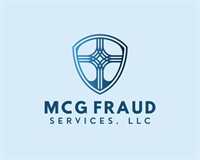Promoting Growth.

For more than 50 years, the Metro SA Chamber—formerly the North San Antonio Chamber of Commerce—has championed business growth, providing small business support, professional networking, and leadership training programs to help local businesses thrive.

Through the involvement of individual and corporate members representing small and large organizations across various industries, the Metro SA Chamber is committed to supporting business growth and leadership development in Bexar County.
Since its inception 50 years ago, Metro SA Chamber has been the trusted voice for business in the community, driving success and championing growth across industries and interests.



Metro SA Chamber is dedicated to empowering entrepreneurs and businesses by connecting them with vital resources and tools for success. Through our partnership with local government and community organizations, we provide access to leadership development programs, leadership training, and small business resources designed to help businesses thrive.

Elevate your career and grow your business with Metro SA Chamber’s robust leadership development programs. From our award-winning Leadership Lab and Innovative Leadership Program to unique offerings like Civic Leadership Academy, we provide the tools, connections, and resources you need to lead with confidence. Explore our programs and start transforming your professional journey today!




.png)
.png)
.png)